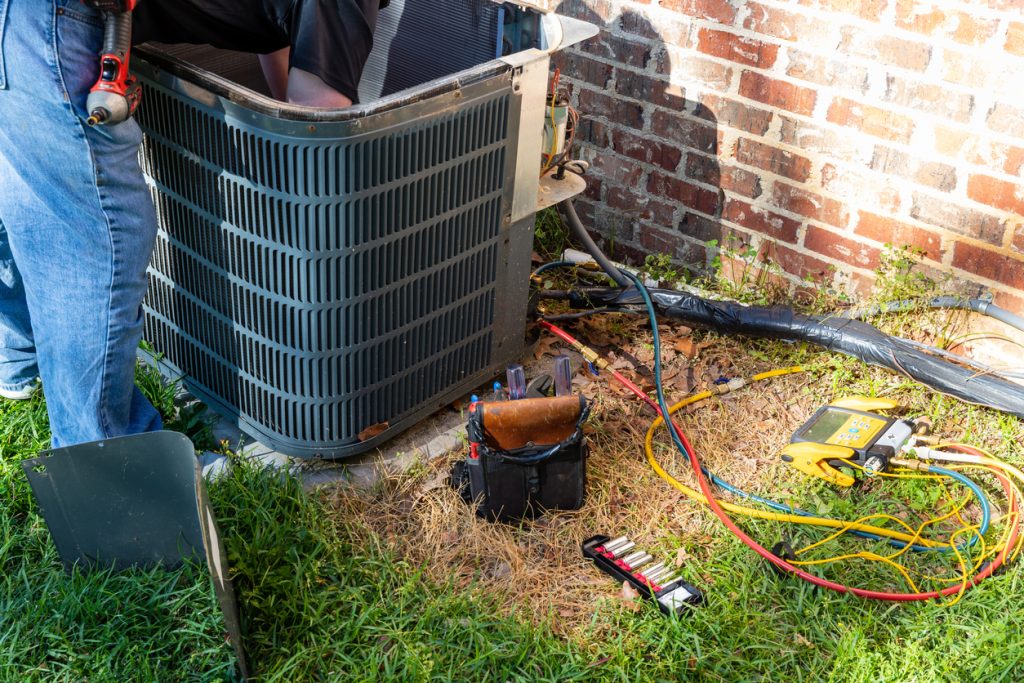A malfunctioning HVAC system can be a health hazard to your family. For instance, there could be natural gas leaks, carbon monoxide leaks, or refrigerant leaks. Inhaling natural gas can cause severe headaches, breathing complications, and memory problems. Carbon monoxide poisoning may cause dizziness, confusion, and headaches and may be fatal. Refrigerant leaks harm the environment and cause headaches, breathing difficulties, and skin irritation.
What Is an HVAC Safety Inspection?
Like any other machine, HVAC systems require regular inspection to ensure they are operating efficiently without putting your family at risk. An HVAC safety inspection involves procedures that improve a system’s safety.
If you are not a professional, it’s not a good idea to conduct an HVAC safety inspection yourself. Your best bet is to seek professional services. This is because only skilled technicians should work on HVAC systems.
The safety inspection skill is not learned by simply watching a few tutorials. It requires training and experience. You may also lack the appropriate tools for the job, and you may up damaging your system. You may also harm yourself when you come in contact with electrical connections.
When our professional technicians come over, they inspect the electrical wiring, test contactors, check the capacitors, and examine the blower motor and fan. They will also look out for carbon monoxide and refrigerant leaks. In addition, they will clean all your system components and lubricate all the moving parts.
Why You Need an HVAC Safety Inspection
An HVAC safety inspection eliminates HVAC issues that may put your family at risk. In addition, a technician can spot problems that may cause your system to consume more energy. The US Department of Energy notes that regular inspection and maintenance visits cut energy costs by up to 30%.
A technician can also spot malfunctioning components and repair them before the damage worsens. By tackling the issues early enough, the technician will prevent more expensive repairs from occurring. Addressing faulty parts early enough also helps to increase your system’s lifespan.
Regular inspections keep you covered by your warranty, too. Most manufacturers accompany their systems with a warranty that covers the units for several years. When you submit a repair request during the warranty period, the manufacturers will want to know whether you have been scheduling maintenance and inspection visits. If you have not been doing so, the warranty becomes void.
System issues, such as refrigerant leaks, may reduce your HVAC system’s ability to move heat from one area to another. Also, a faulty system may not distribute temperatures evenly in all rooms in your house. Openings in your HVAC ducts may allow pollutants to enter your home, resulting in poor indoor air quality. HVAC inspections eliminate such issues, keeping your family comfortable all year round.
Our Services
Contact Cover HVAC whenever you need an HVAC safety inspection or AC installation services in College Station, TX. We have years of experience and the right tools to work on your system.




